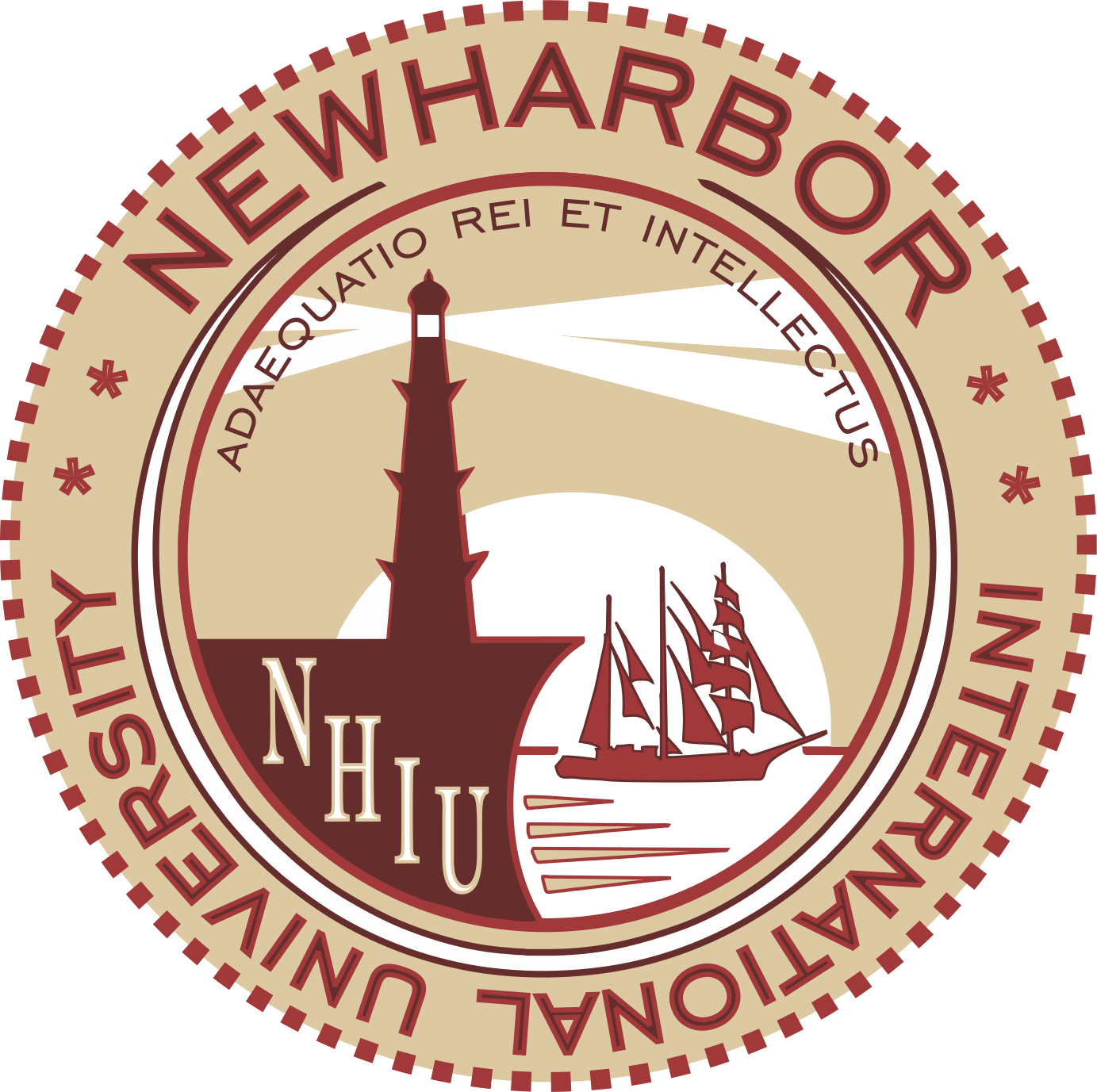
NEWHARBOR INTERNATIONAL UNIVERSITY
Adequatio Rei et Intellectus
Program Objectives:
The objective of the Executive Master's program (E.M.B.A.) is to enable professionals in senior management positions, stakeholders in small- and midsized companies, and staff holding positions with key business and management responsibilities, to strengthen their managerial skills and to develop their leadership characteristics and personality. To better accommodate the needs of busy professionals, the class schedule of the E.M.B.A. permits students to continue working while pursuing their studies, and allows the participants to apply and implement the knowledge and skills learned wihtin the program in a real-world practical environment. .
The program is a practical and flexible in nature, and aims to improve individual and organizational performance through the enhancement of our graduates' professionalism and expertise in key business functions and enhanced strategical thinking. At the end of the program, the EMBA participant prepares the final project/thesis which is set and executed within the participant’s employing organization, and which will apply and implement the tools and instruments obtained through-out the program. The project will present an in-depth analysis, the development of a solution and the creation of a comprehensive strategic plan around and focused on a particular strategic issue in the organization.
Learning Outcomes
Upon successful completion of this program, students will be provided with the key ingredients for being able:
-
to embrace and absorb knowledge, professional ethics and business experience on international level;
-
to develop and implement valuable strategic plans within the participants’ company or employing organization;
-
to become more effective leaders and learn to make better and more insightful business decisions;
-
to be able and willing to share knowledge with colleagues and staff and demonstrate team-based problem-solving abilities; thorugh the implementation and application of new business mode;
-
to take-in and expose an improved managerial and leadership styles;
Admission Prerequisites:
The E.M.B.A. program is designed for mid-to-senior level managers, executives, and entrepreneurs and participating students typically have more than 10 years of relevant work experience including substantial management and leadership responsibility. Students also bring their current and prior experience into the classroom to enrich the learning experience of their fellow students.
Applicants to the E.M.B.A. program must have one of the following formal academic credentials for admission:
-
Bachelor’s degree in Business Administration or a related business discipline, from an institution that is accredited or approved by the appropriate state agency. The applicant must have a minimum cumulative GPA of 2.7.
-
Completion of undergraduate program evaluated to be comparable to a Bachelor’s degree in Business Administration or a related business discipline as determined by an acceptable Credential Evaluation service. The applicant must have a minimum cumulative GPA of 2.7.
Program Requirements:
The Executive Master of Business Administration is a non-terminal degree program and requires a minimum of seventy (70) quarter units beyond the bachelor's degree. Students must complete a minimum of fifty-five (55) quater units of graduate study while enrolled at our University. Graduate students must complete their respective degree programs with a grade point average of B (3.0) or better. The Master's degree is the first 70 units of the graduate program culminating in the Doctoral Degree.
The Executive Master of Business Administration (E.M.B.A.) Curriculum:
Core Courses:
BUS 504: Management Finance (5)
BUS 510: Marketing Management (5)
BUS 514: Human Resources Management (5)
BUS 522: Business Strategy & Policy (5)
BUS 630: Innovation & Change (5)
BUS 632: Leading Business Planning (5)
BUS 634: Leading Strategic Implementation (5)
BUS 636: Leading for Competitive Advantage (5)
Electives: (Select a minimum of 25 credits):
BUS 601: Advanced Personnel Management (5 )
BUS 604: Institutional Planning (5 )
BUS 610: Institutional Finance (5 )
BUS 612: Economics & Public Policy (5 )
BUS 616: Advanced Quantitative Methods (5 )
BUS 617: Cost Accounting (5 )
BUS 618: Business Planning (5 )
BUS 619: Rational Management (5 )
BUS 620: Managerial Accounting (5 )
BUS 621: Management Practice & Organizational Behavior (5 )
BUS 622: Advanced Managerial Economics (5 )
BUS 623: Industry Economic Analysis (5 )
BUS 624: Organization Design (5 )
BUS 625: Leadership Behavior & Motivation (5 )
BUS 626: Corporate Planning & Environment (5 )
BUS 627: Multinational Marketing (5 )
BUS 628: Industrial Management (5 )
BUS 633: Applied Dynamics of Teams, Employee
Empowerment, & Culture Change (5)
BUS 645: Contemporary Marketing Management (5)
BUS 646: Innovation Management & Methodology (5)
BUS 654: International Macroeconomics Analysis (5)
BUS 655: Management & Global European Competition (5)
BUS 661: International Economics (5)
BUS 662: International Marketing (5)
BUS 663: Global Business Strategy and Operations (5)
BUS 664: International Human Resource Management (5)
BUS 680: Legal Issues for the Modern Institution (5 )
BUS 681: Change-Management & Information Technology (5)
BUS 682: Managing Internet & E-commerce (5)
BUS 683: IT-Consultancy (5)
BUS 684: Managing Information Technology (5)
BUS 688: Administrative Policy & Administration (5)
BUS 694: Directed Study (5)
BUS 695: Independent Research & Presentation (5)
BUS 696: Project (5)
Graduation Assignment:
BUS 598: Thesis I (5)
BUS 599: Thesis II (5)
In certain instances participants may select additional electives from our other master's degrees such as the Master in the Human Behavior, Psychology or Computer Science. The request for elective courses from other academic diciplines, must be properly substantiated and should contribute to an improved matching of the student's personal goals and objectives while at the same time the overall program integrity is not harmed. The selected elective courses may not have been previously taken and require permission by faculty advisor.





